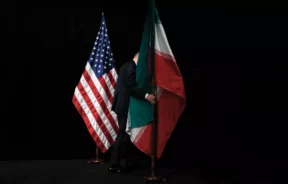IAEA Chief Expresses Hope for U.S.-Iran Talks in Oman
WANA (Apr 12) – The Director General of the International Atomic Energy Agency (IAEA), Rafael Grossi, has voiced strong support for renewed diplomatic efforts between Iran and the U.S., stressing the urgent need for a mutual agreement ahead of upcoming talks in Oman.
In an interview conducted during his visit to Beijing, Grossi stated, “We need an agreement—and we need it soon. We’re making this call just ahead of the important meeting between the U.S. and Iran in Oman, which will take place in a few hours.”
Grossi added, “So, we wish for the best outcomes in those talks. We are aware that message exchanges have taken place between the President of the United States and the Iranian government.”
The IAEA chief’s comments come amid heightened diplomatic activity between Tehran and Washington. Just last week, Iran’s Foreign Minister, Seyed Abbas Araghchi, confirmed in an op-ed for The Washington Post that a series of letters and messages have been exchanged between the two nations in recent weeks.
“From our side, these exchanges have been neither symbolic nor ceremonial,” Araghchi wrote. “We consider them a genuine effort to clarify positions and open a window toward diplomacy.”
Despite acknowledging the existence of significant differences, Grossi remained cautiously optimistic. “We know there are still many disagreements, but there is one important factor that should give us hope: the need for an agreement is now being recognized. The content, scope, and conditions of such an agreement are what must be negotiated.”
Iranian Foreign Minister Seyed Abbas Araghchi has arrived in Muscat, Oman, leading a political delegation for indirect talks with Steve Witkoff, the U.S. President’s special envoy for West Asia.
On Saturday, April 12, Araghchi landed in Muscat accompanied by Esmaeil Baghaei, spokesperson for the Ministry of Foreign Affairs, Majid Takht-Ravanchi, Deputy Foreign Minister for Political Affairs, Kazem Gharibabadi, Deputy for International and Legal Affairs, as well as senior negotiators on sanctions relief, nuclear issues, and other relevant experts.

Araghchi and His Delegation Arrive in Muscat
WANA (Apr 12) – Iranian Foreign Minister Seyed Abbas Araghchi has arrived in Muscat, Oman, leading a political delegation for indirect talks with Steve Witkoff, the U.S. President’s special envoy for West Asia. On Saturday, April 12, Araghchi landed in Muscat accompanied by Esmaeil Baghaei, spokesperson for the Ministry of Foreign Affairs, Majid Takht-Ravanchi, […]












